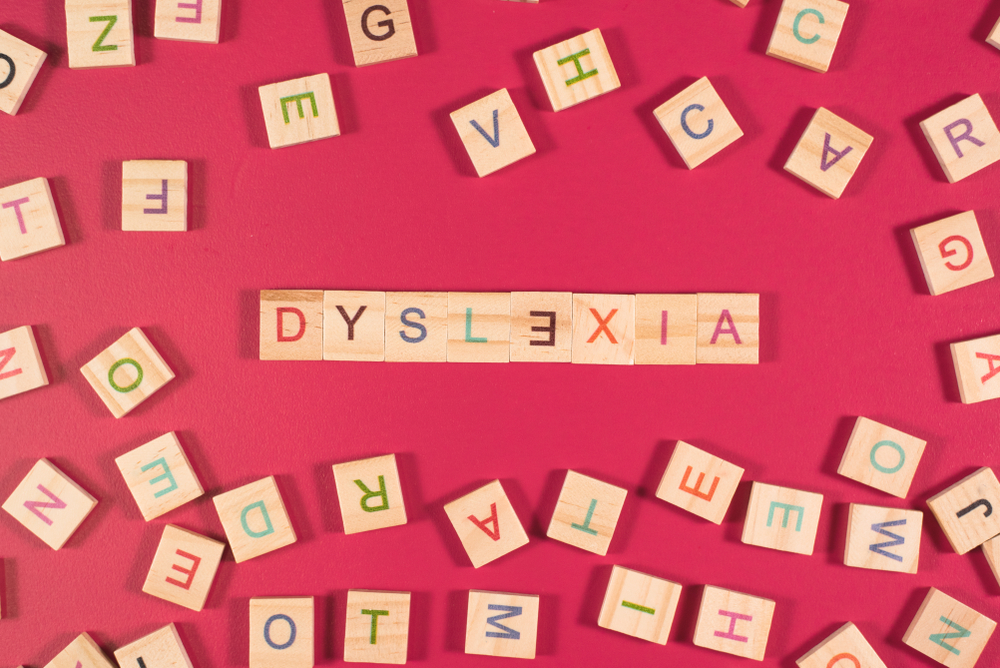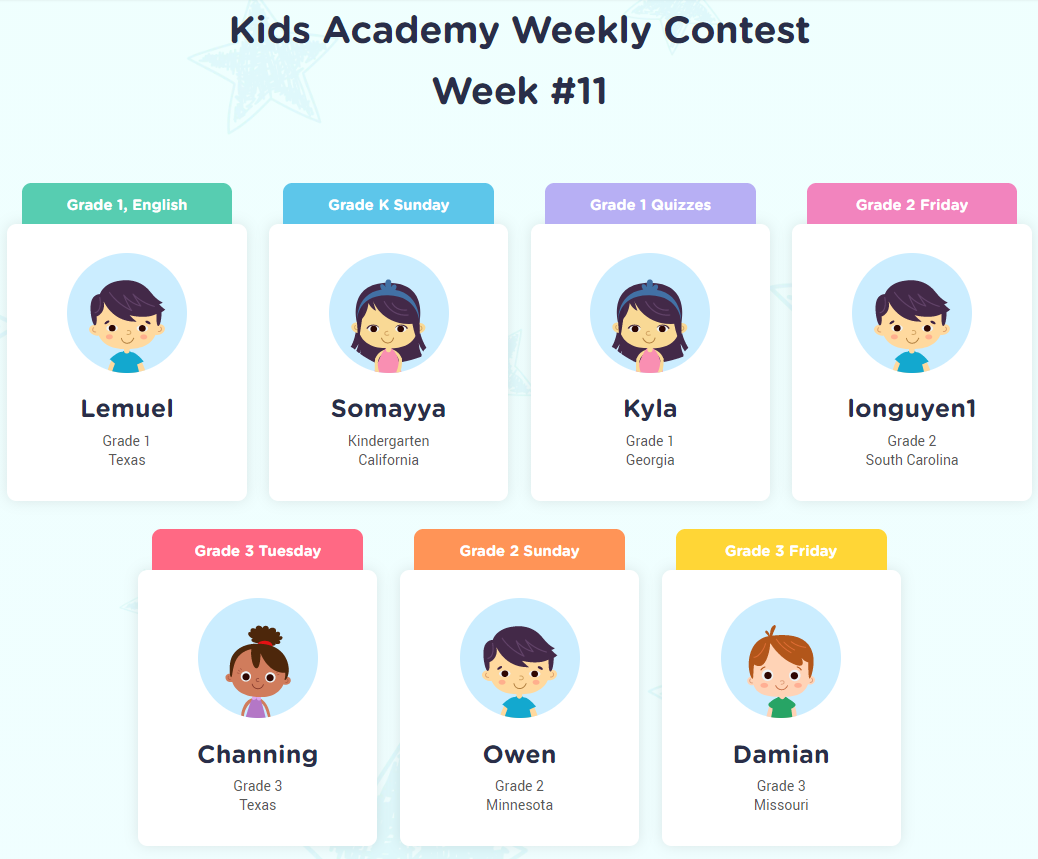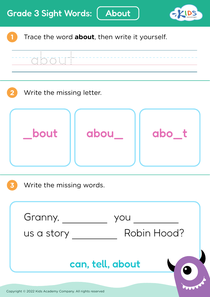Understanding adjectives Grade 3 Worksheets
3 filtered results
-
From - To
Welcome to our "Understanding Adjectives Grade 3 Worksheets" page! These engaging worksheets are designed to help third graders master adjectives and enrich their vocabulary. Students will explore how adjectives describe nouns, enhancing their ability to create vivid sentences. Our thoughtfully crafted activities include matching, fill-in-the-blank, and identification exercises, making learning fun and interactive. Whether in the classroom or at home, these resources support skill development in a comprehensive and enjoyable way. Perfect for reinforcing language arts concepts, our worksheets aim to inspire creativity and boost written expression in young learners. Dive in and watch your child's writing flourish!
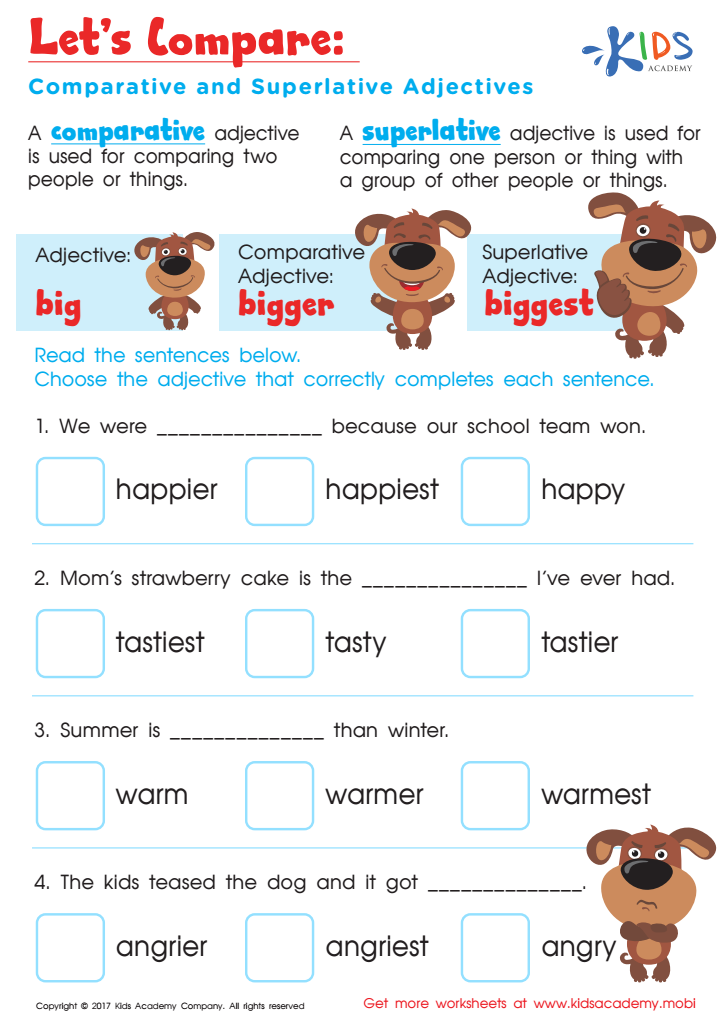

Comparative and Superlative Worksheet
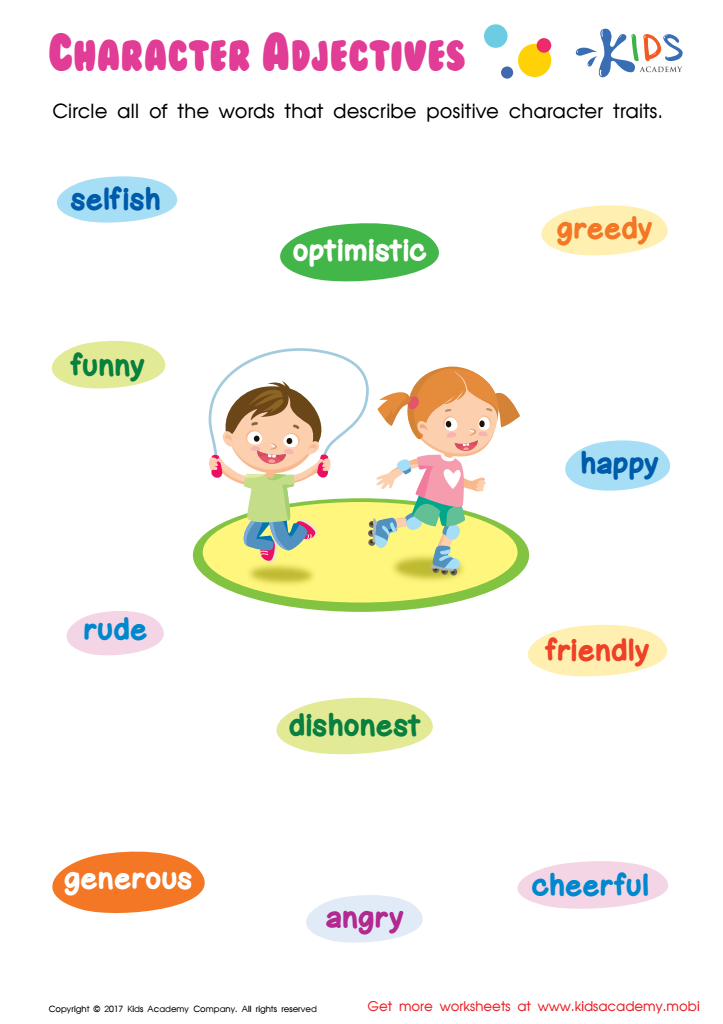

Character Adjectives Worksheet


Adjectives Worksheet
Understanding adjectives is crucial for third-grade students as they enhance language skills, improve communication, and foster creativity. Adjectives are descriptive words that modify nouns, providing specific details about size, shape, color, and other qualities. This knowledge allows young learners to express their thoughts more vividly and accurately, making their writing more engaging.
For parents and teachers, focusing on adjectives helps develop students’ reading comprehension. When children encounter more descriptive texts during lessons, they learn to identify adjectives, which aids in better understanding characters, settings, and emotions in stories. Additionally, rich vocabulary contributes to stronger verbal skills, setting a solid foundation for higher-level language arts as students progress.
Moreover, learning about adjectives promotes critical thinking. It encourages children to analyze and describe their surroundings creatively, and express personal ideas and experiences more effectively. Encouraging this skill not only aids in academic development but builds self-confidence in their abilities to communicate.
Lastly, providing children with a robust understanding of adjectives equips them with essential tools for collaboration and social interaction, enabling better relationships with peers as they learn to articulate their thoughts and feelings in a clear and descriptive manner. Emphasizing adjectives now paves the way for lifelong communication skills.
 Assign to My Students
Assign to My Students


